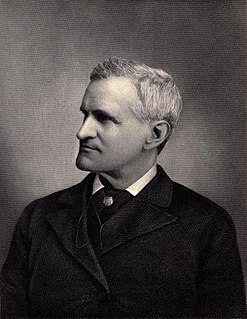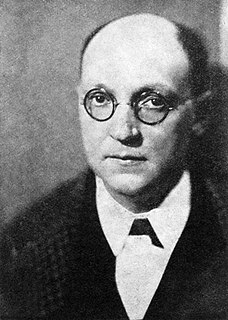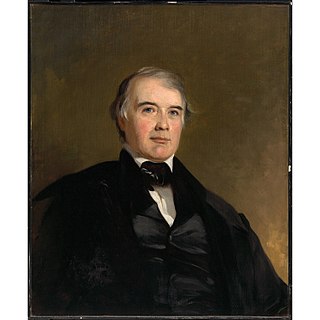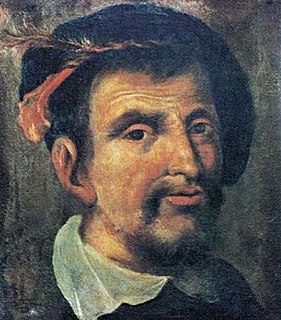A Quote by Francis Parkman
The Spanish voyager, as his caravel ploughed the adjacent seas, might give full scope to his imagination, and dream that beyond the long, low margin of forest which bounded his horizon lay hid a rich harvest for some future conqueror; perhaps a second Mexico with its royal palace and sacred pyramids, or another Cuzco with its temple of the Sun, encircled with a frieze of gold. Haunted by such visions, the ocean chivalry of Spain could not long stand idle.
Related Quotes
He loved me. He'd loved me as long as he he'd known me! I hadn't loved him as long perhaps, but now I loved him equally well, or better. I loved his laugh, his handwriting, his steady gaze, his honorableness, his freckles, his appreciation of my jokes, his hands, his determination that I should know the worst of him. And, most of all, shameful though it might be, I loved his love for me.
When the sunlight strikes raindrops in the air, they act like a prism and form a rainbow. The rainbow is a division of white light into many beautiful colors. These take the shape of a long round arch, with it’s path high above, and it’s two ends apparently beyond the horizon. There is, according to legend, a boiling pot of a gold at one end. People look, but no one ever finds it. When a man looks for something beyond his reach, his friends say he is looking for the pot of gold at the end of the rainbow.
Happy is the man who has that in his soul which acts upon the dejected as April airs upon violet roots. Gifts from the hand are silver and gold, but the heart gives that which neither silver nor gold can buy. To be full of goodness, full of cheerfulness, full of sympathy, full of helpful hope, causes a man to carry blessings of which he is himself as unconscious as a lamp is of its own shining. Such a one moves on human life as stars move on dark seas to bewildered mariners; as the sun wheels, bringing all the seasons with him from the south.
What profusion is there in His work! When trees blossom there is not a single breastpin, but a whole bosom full of gems; and of leaves they have so many suits that they can throw them away to the winds all summer long. What unnumbered cathedrals has He reared in the forest shades, vast and grand, full of curious carvings, and haunted evermore by tremulous music; and in the heavens above, how do stars seem to have flown out of His hand faster than sparks out of a mighty forge!
The astronomer is, in some measure, independent of his fellow astronomer; he can wait in his observatory till the star he wishes to observe comes to his meridian; but the meteorologist has his observations bounded by a very limited horizon, and can do little without the aid of numerous observers furnishing him contemporaneous observations over a wide-extended area.
Every schoolchild knows that Columbus set out across the sea to prove that the world was round. But the belief in a spherical earth had a long and illustrious pedigree, as Columbus himself was well aware. . . . "The second reason that inspired the Admiral [Columbus] to launch his enterprise and helped justify his giving the name 'Indies' to the lands which he discovered was the authority of many learned men who said that one could sail westward from the western end of Africa and Spain to the eastern end of India, and that no great sea lay between."
I part of this great nation because my grandfather was born here, in Cincinnati, Ohio. He took a horse, back in 1895, and ride it all the way down to Guanajuato, looking for his American dream. No penny in his pocket, only dreams in his head. And he was an immigrant coming from the States into Mexico. And he found his American dream in Mexico.
A priest is a man vowed, trained, and consecrated, a man belonging to a special corps, and necessarily with an intense esprit de corps. He has given up his life to his temple and his god. This is a very excellent thing for the internal vigour of his own priesthood, his own temple. He lives and dies for the honour of his particular god. But in the next town or village is another temple with another god. It is his constant preoccupation to keep his people from that god. Religious cults and priesthoods are sectarian by nature; they will convert, they will overcome, but they will never coalesce.
From high Meonia's rocky shores I came, Of poor decsent, Acoetes is my name, My sire was measly born: no oxen ploughed, His fruitful fields, nor in his pastures lowed, His whole estate within the waters lay' With lines and hooks he caught the finny prey; His art was all his livelehood, which he Thus with his dying lips bequeathed to me: In streams, my boy, and rivers take thy chance; There swims', said he, Thy whole inheritance.
With a chip on his shoulder larger than his margin of victory, Barack Obama is approaching his second term by replicating the mistake of his first. Then his overreaching involved health care - expanding the entitlement state at the expense of economic growth. Now he seeks another surge of statism, enlarging the portion of gross domestic product grasped by government and dispensed by politics. The occasion is the misnamed "fiscal cliff," the proper name for which is: the Democratic Party's agenda.
This soldier, I realized, must have had friends at home and in his regiment; yet he lay there deserted by all except his dog. I looked on, unmoved, at battles which decided the future of nations. Tearless, I had given orders which brought death to thousands. Yet here I was stirred, profoundly stirred, stirred to tears. And by what? By the grief of one dog. Napoleon Bonaparte, on finding a dog beside the body of his dead master, licking his face and howling, on a moonlit field after a battle. Napoleon was haunted by this scene until his own death.







































